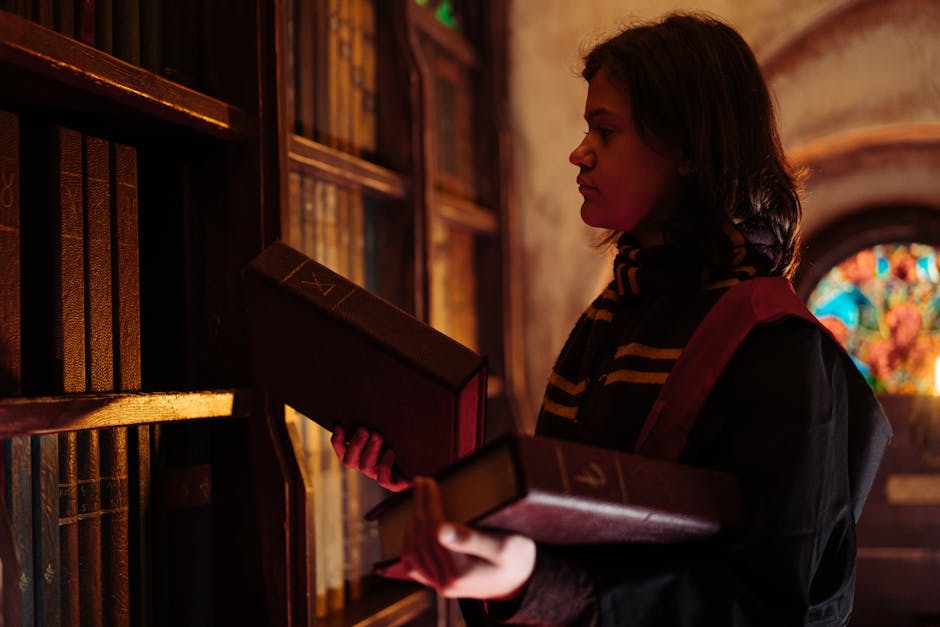In a groundbreaking development that has captivated historians, archaeologists, and literature enthusiasts alike, the ancient secrets of Herculaneum’s lost library are finally being unveiled. This remarkable achievement, made possible by cutting-edge technology, is shedding light on a treasure trove of texts that were thought to be lost forever in the catastrophic eruption of Mount Vesuvius in 79 AD. Located near the more famous Pompeii, Herculaneum was a Roman town buried under volcanic ash and pyroclastic flows, preserving its contents in a way that has intrigued scholars for centuries.
The Discovery of the Herculaneum Scrolls
The story of Herculaneum’s lost library begins in the 18th century when excavators discovered a villa believed to belong to Lucius Calpurnius Piso Caesoninus, a Roman statesman and father-in-law of Julius Caesar. Inside the villa, they found hundreds of charred scrolls, carbonized by the intense heat of the eruption. These scrolls, part of an extensive private library, were so fragile that any attempt to unroll them risked their destruction. For centuries, the contents of these scrolls remained a tantalizing mystery.
The Technological Breakthrough
For decades, scientists and historians have sought ways to read these fragile scrolls without damaging them. Traditional methods, such as physically unrolling the scrolls, often led to their disintegration. However, recent advancements in imaging technology have changed the game. Using a technique called X-ray phase-contrast tomography, a team of researchers has been able to virtually “unroll” the scrolls and decipher their texts. This method leverages high-resolution X-rays to detect the subtle differences in the density of the ink and papyrus, allowing the text to be read without physically touching the scrolls.
What the Scrolls Reveal
The initial findings from the scrolls have been nothing short of extraordinary. The texts include works of philosophy, literature, and possibly even previously unknown writings by prominent ancient thinkers. Early translations suggest that some of the scrolls contain works by Epicurean philosophers, such as Philodemus of Gadara, whose writings on ethics, poetry, and the nature of the gods were influential in Roman intellectual circles. There is also speculation that the library may house lost works by other classical authors, including perhaps even Aristotle or Sophocles.
The significance of these discoveries cannot be overstated. The Herculaneum scrolls offer a rare glimpse into the intellectual life of the ancient Roman world. They provide insights into the philosophical debates, literary tastes, and cultural values of a society that has profoundly influenced Western civilization. Moreover, the potential discovery of lost works could reshape our understanding of classical literature and philosophy.
The Challenges Ahead
While the technological breakthrough is a monumental step forward, the work is far from over. The process of scanning and deciphering the scrolls is painstakingly slow and requires significant computational resources. Additionally, the carbonized state of the scrolls means that some sections may be too damaged to recover. Researchers are also grappling with the challenge of translating and interpreting the ancient Greek and Latin texts, which often contain complex and archaic language.
A New Chapter in Archaeology
The successful reading of the Herculaneum scrolls marks a new chapter in the field of archaeology. It demonstrates how the fusion of technology and traditional scholarship can unlock the secrets of the past in ways previously unimaginable. This achievement has also sparked renewed interest in other ancient sites and artifacts that may benefit from similar technological approaches.
For the world of classical studies, the Herculaneum scrolls are a reminder of the enduring power of knowledge. Even after nearly 2,000 years of silence, the voices of ancient philosophers and writers are being heard once again, offering wisdom and inspiration to modern audiences. As researchers continue to unravel the mysteries of Herculaneum’s lost library, one thing is clear: the past still has much to teach us.
Stay tuned to NextMinuteNews for more updates on this fascinating journey into the heart of ancient history.




